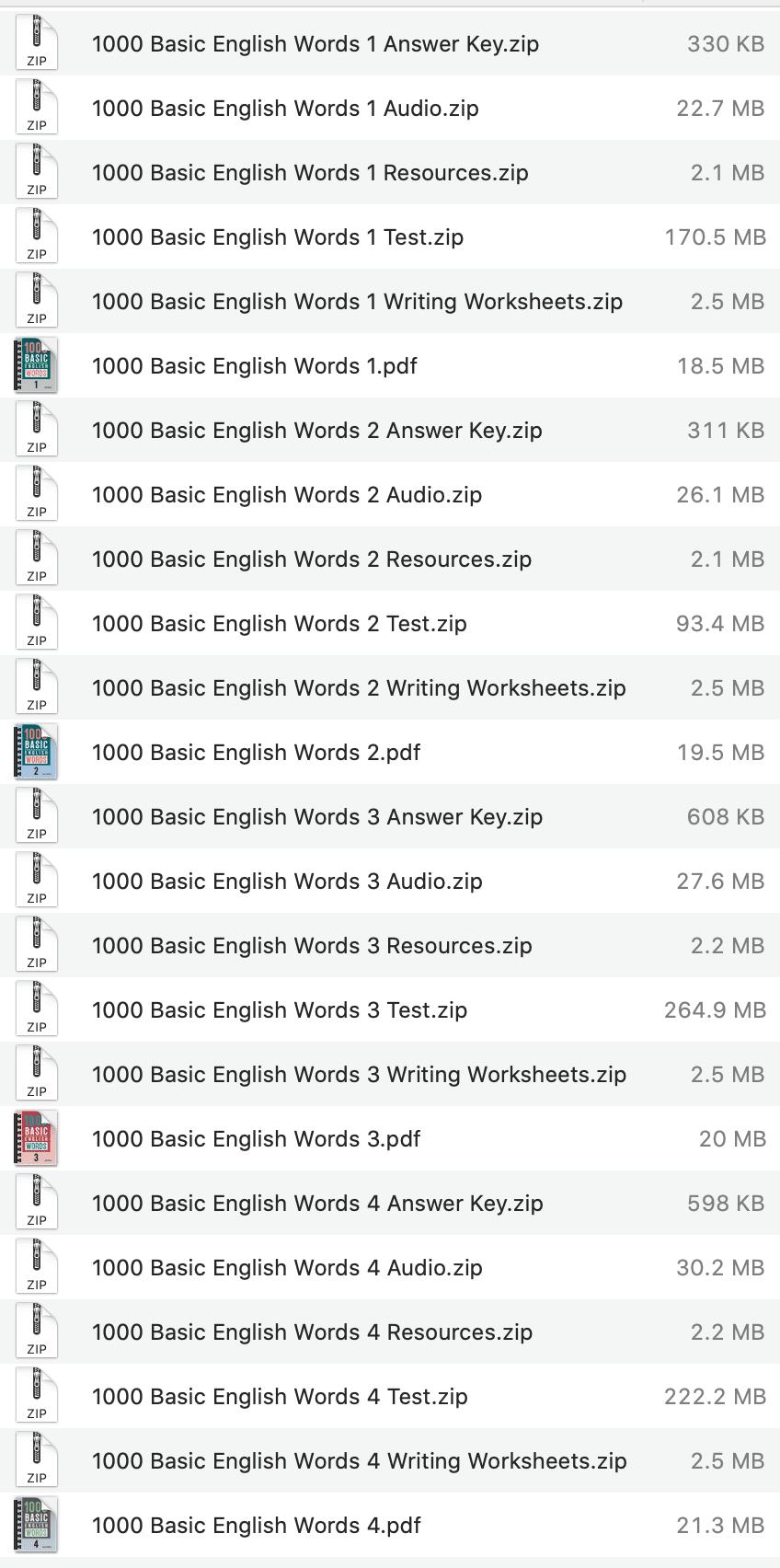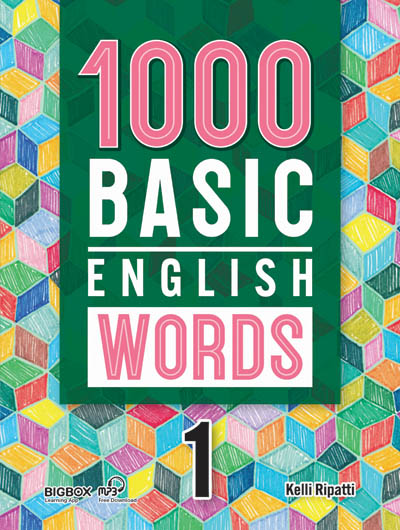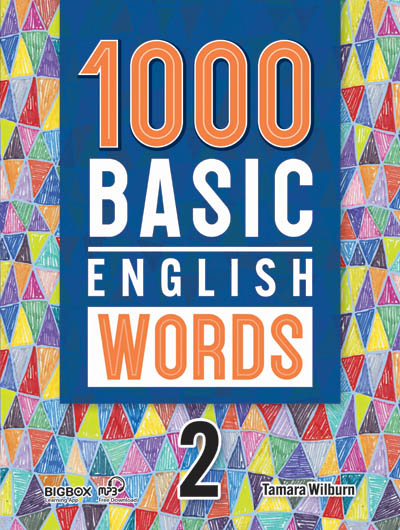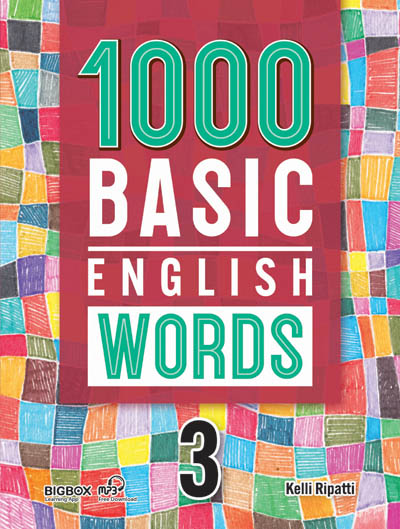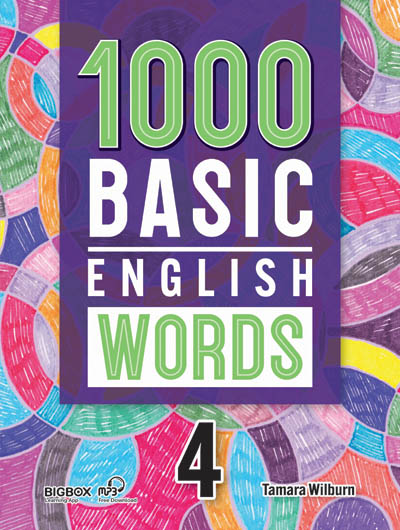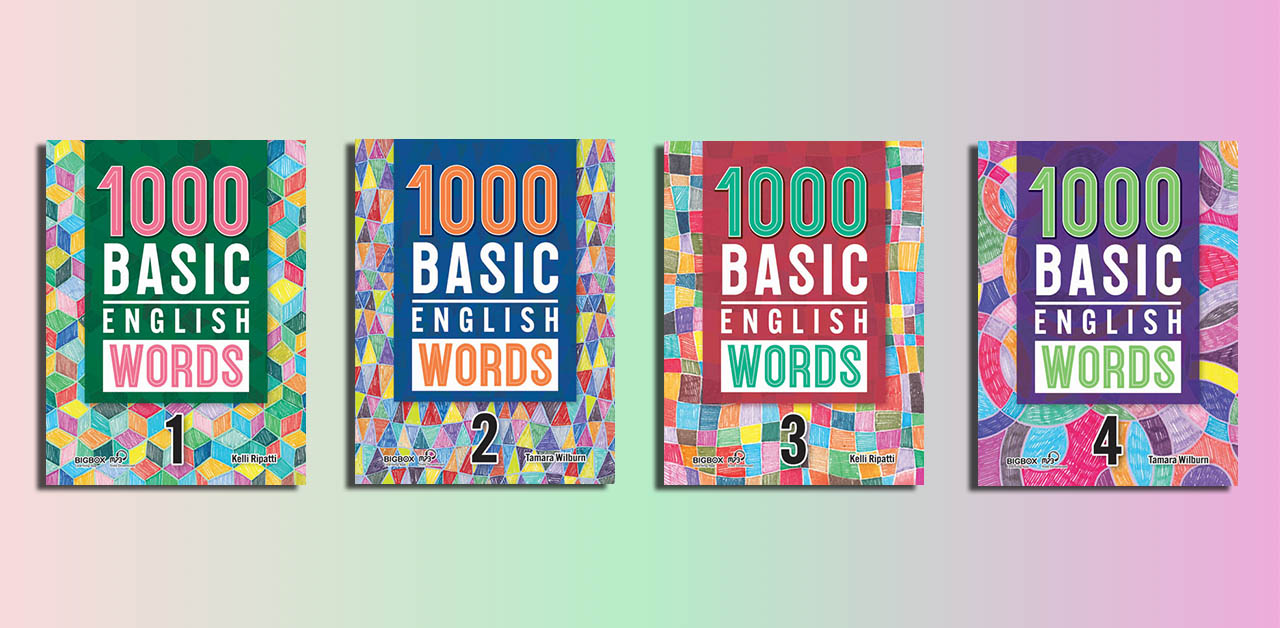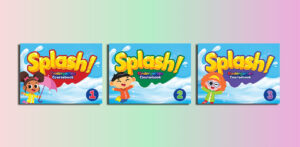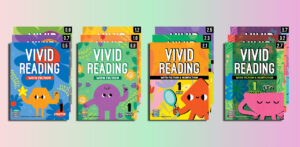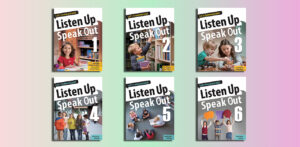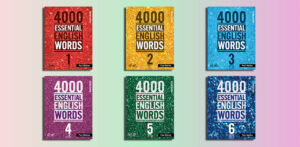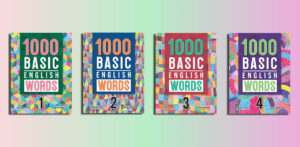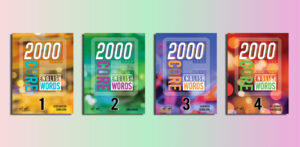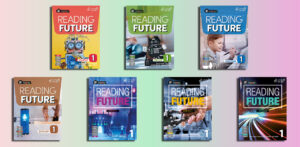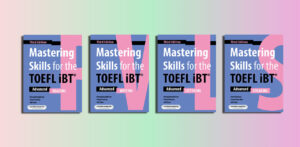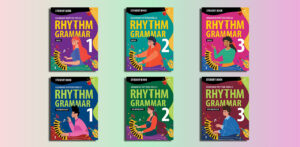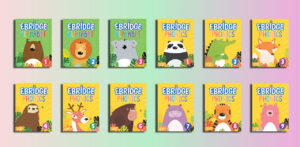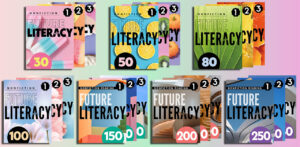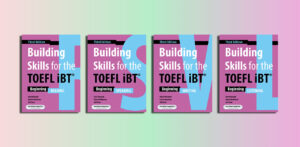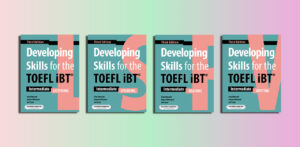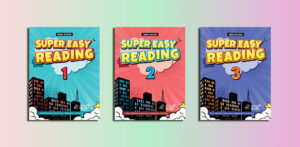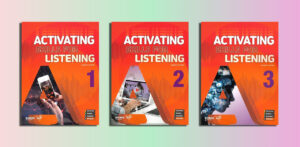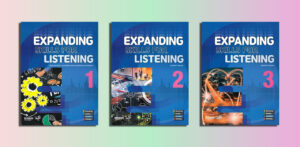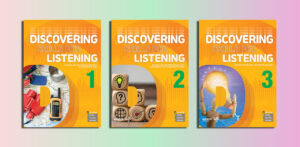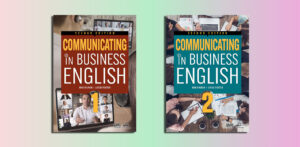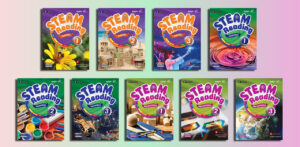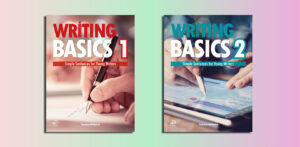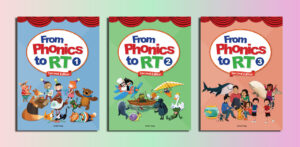Compass, Download, Online iTools
Download Compass 1000 Basic English Words Pdf Online iTools (Pre A1 / A2)
1000 Basic English Words (PDFs, Resources)
Level 1 (Pre A1)
1000 Basic English Words 1.pdf – Sample: Click
Answer Key.zip – Audio.zip – Resources.zip – Test.zip – Writing Worksheets.zip
Level 2 (A1)
1000 Basic English Words 2.pdf – Sample: Click
Answer Key.zip – Audio.zip – Resources.zip – Test.zip – Writing Worksheets.zip
Level 3 (A1+)
1000 Basic English Words 3.pdf – Sample: Click
Answer Key.zip – Audio.zip – Resources.zip – Test.zip – Writing Worksheets.zip
Level 4 (A2)
1000 Basic English Words 4.pdf – Sample: Click
Answer Key.zip – Audio.zip – Resources.zip – Test.zip – Writing Worksheets.zip
Online interactive book Demo
Overview of “1000 Basic English Words” by Compass Publishing
Contents
- 1 Overview of “1000 Basic English Words” by Compass Publishing
- 2 Who is suitable for ‘1000 Basic English Words New’?
- 3 The benefits of ‘1000 Basic English Words New’
- 4 Effective teaching and learning strategies for ‘1000 Basic English Words New’
- 5 Top Alternatives to “1000 Basic English Words New” for Effective Vocabulary Building
| ✅ Coursebook: | 1000 Basic English Words New |
| ✅ Publisher: | Compass Publishing |
| ✅ Levels: | Pre A1, A1, A1+, A2 |
| ✅ English type: | International English |
| ✅ Skill: | Vocabulary |
| ✅ For: | Primary, Adult, Young Adult, Exam |
| ✅ Publication year: | 2019 |
1000 Basic English Words 1 New
- Writer: Kelli Ripatti
- Target: Beginner
- CEFR Level: Pre A1
1000 Basic English Words 2 New
- Writer: Tamara Wilburn
- Target: Beginner
- CEFR Level: A1
1000 Basic English Words 3 New
- Writer: Kelli Ripatti
- Target: Beginner
- CEFR Level: A1+
1000 Basic English Words 4 New
- Writer: Tamara Wilburn
- Target: Beginner
- CEFR Level: A2
Features:
- Graded Vocabulary: Vocabulary is organized in a way that gradually increases in difficulty, making it suitable for beginners.
- Correct Pronunciation: Phonetic symbols are provided to indicate the correct pronunciation of words.
- Clear Definitions and Examples: Each target word comes with easy-to-understand definitions and examples to aid comprehension.
1000 Basic English Words 1 Student’s Book
Who is suitable for ‘1000 Basic English Words New’?
“1000 Basic English Words New” is suitable for:
- Beginners in English: The series targets beginners and is designed to cater to those at the initial stages of learning English.
- Young Learners: The content is appropriate for children who are starting to learn English, especially given the clear definitions and examples.
- Adult Learners: Adults who are new to English and need a structured, easy-to-follow approach will also benefit from these books.
- Self-Learners: Individuals studying English on their own can use these books for systematic vocabulary building.
- ESL/EFL Students: Non-native English speakers enrolled in English as a Second Language (ESL) or English as a Foreign Language (EFL) courses can use these books to supplement their learning.
- CEFR Levels Pre A1 to A2: Those who are at the Pre A1 to A2 levels according to the Common European Framework of Reference for Languages (CEFR) will find the material appropriate for their proficiency level.
The series is designed to build a strong foundation in basic English vocabulary, making it ideal for anyone looking to improve their basic English language skills.
1000 Basic English Words 2 Student’s Book
The benefits of ‘1000 Basic English Words New’
The “1000 Basic English Words New” series offers several benefits for learners:
- Structured Learning: The series provides a systematic approach to vocabulary building, with graded vocabulary that increases in complexity, allowing learners to build their knowledge step-by-step.
- Pronunciation Guidance: Phonetic symbols are included to help learners pronounce words correctly, which is crucial for developing good speaking and listening skills.
- Clear Definitions and Examples: Each word comes with simple definitions and illustrative examples, making it easier for learners to understand and remember the words.
- CEFR Aligned: The books are aligned with the CEFR levels (Pre A1 to A2), ensuring that the vocabulary is appropriate for the learners’ proficiency levels and helping them progress in their language learning journey.
- Beginner Friendly: The content is tailored for beginners, making it accessible for those who are new to learning English, including both children and adults.
- Self-Study Compatible: The clear layout and straightforward explanations make these books suitable for self-learners who can use them independently without needing a teacher.
- Support for ESL/EFL Students: The series is an excellent supplementary resource for students in English as a Second Language (ESL) or English as a Foreign Language (EFL) programs, enhancing their classroom learning.
- Vocabulary Foundation: By focusing on basic words, the series helps learners build a strong vocabulary foundation, which is essential for advancing to higher levels of English proficiency.
- Engaging Format: The inclusion of phonetic symbols and example sentences makes the learning process more engaging and interactive for learners.
- Consistency Across Levels: With consistent authorship and a clear progression from one book to the next, learners can easily continue their studies as they advance in their proficiency.
Overall, the “1000 Basic English Words New” series is designed to make learning English vocabulary efficient, enjoyable, and effective for beginners.
1000 Basic English Words 3 Student’s Book
Effective teaching and learning strategies for ‘1000 Basic English Words New’
To maximize the benefits of the “1000 Basic English Words New” series, both teachers and learners can employ a variety of effective teaching and learning strategies:
For Teachers:
- Interactive Lessons: Incorporate interactive activities such as flashcards, word games, and quizzes to reinforce vocabulary retention and make learning fun.
- Phonetic Practice: Focus on pronunciation by conducting phonetic drills and using audio resources to model correct pronunciation, helping students master the sounds of English.
- Contextual Learning: Use the example sentences provided in the book to create context-based learning scenarios. Encourage students to use new words in sentences related to their daily lives.
- Visual Aids: Utilize visual aids like pictures, charts, and videos to illustrate the meanings of words, making it easier for students to remember and understand new vocabulary.
- Group Activities: Organize group activities and discussions where students can use new vocabulary in conversation, promoting collaborative learning and peer support.
- Regular Assessments: Conduct regular vocabulary tests and assessments to track progress and identify areas where students may need additional support.
- Homework Assignments: Assign homework that requires students to use the new words in writing or speaking exercises, reinforcing what they have learned in class.
- Differentiated Instruction: Tailor lessons to meet the diverse needs of students, providing additional support or advanced activities as needed.
For Learners:
- Daily Practice: Set aside time each day to review and practice new vocabulary, using flashcards or vocabulary apps to reinforce learning.
- Active Usage: Incorporate new words into everyday conversations and writing tasks to enhance retention and understanding.
- Phonetic Drills: Practice pronunciation regularly using the phonetic symbols provided in the book, and listen to native speakers to mimic their pronunciation.
- Vocabulary Journal: Keep a vocabulary journal to record new words, their definitions, example sentences, and any related notes, reviewing it regularly.
- Peer Learning: Study with classmates or language partners to practice new vocabulary through dialogue and collaborative activities.
- Engage with Media: Watch English-language videos, listen to podcasts, and read books or articles that include the vocabulary you are learning to see how words are used in different contexts.
- Self-Quizzing: Test yourself regularly on new vocabulary using flashcards or online quizzes to reinforce memory and recall.
- Mnemonic Devices: Use mnemonic devices, such as associating words with images or creating acronyms, to make vocabulary easier to remember.
By integrating these strategies, both teachers and learners can effectively utilize the “1000 Basic English Words New” series to build a strong foundation in English vocabulary and enhance overall language proficiency.
1000 Basic English Words 4 Student’s Book
Top Alternatives to “1000 Basic English Words New” for Effective Vocabulary Building
Here are some book series that can serve as alternatives to “1000 Basic English Words New”:
- “Oxford Word Skills” by Ruth Gairns and Stuart Redman: This series offers a comprehensive approach to vocabulary building with three levels (Basic, Intermediate, and Advanced). It includes practice exercises, interactive activities, and a focus on using vocabulary in context.
- “English Vocabulary in Use” by Michael McCarthy and Felicity O’Dell: Suitable for various levels from elementary to advanced, this series provides clear explanations, example sentences, and practice exercises to enhance vocabulary acquisition.
- “Vocabulary Workshop” by Jerome Shostak: Designed for different proficiency levels, this series includes vocabulary lessons, contextual exercises, and review units to reinforce learning.
- “Wordly Wise 3000” by Kenneth Hodkinson and Sandra Adams: A well-structured series aimed at improving vocabulary through reading passages, exercises, and activities. It is available for multiple grade levels.
- “Longman Vocabulary Series” by Diane Schmitt, Norbert Schmitt, and David Mann: This series focuses on essential vocabulary for academic purposes and general use, offering clear explanations, practice exercises, and usage tips.
- “Building Vocabulary Skills” by Sherrie L. Nist: Aimed at developing vocabulary through contextual exercises and practice activities, this series is useful for learners looking to enhance their word knowledge effectively.
- “Vocabulary Power” by Kate Dingle and Jennifer Recio Lebedev: This series offers a practical approach to learning vocabulary with engaging activities, real-life contexts, and exercises designed to reinforce new words.
- “Cambridge English Vocabulary in Use“: This series covers different proficiency levels and includes explanations, example sentences, and a variety of exercises to help learners practice and retain new vocabulary.
- “Collins Easy Learning English Vocabulary”: Designed for beginner and intermediate learners, this series provides clear explanations, practice exercises, and real-life examples to enhance vocabulary understanding and usage.
- “Check Your Vocabulary” by Rawdon Wyatt: These workbooks offer targeted vocabulary practice for specific topics and levels, making them suitable for both general and academic English learners.
- “Focus on Vocabulary” by Diane Schmitt and Norbert Schmitt: This series emphasizes academic vocabulary and includes practice exercises, reading passages, and activities that promote active vocabulary use.
- “Academic Vocabulary in Use” by Michael McCarthy and Felicity O’Dell: Geared towards advanced learners, this series helps students develop vocabulary for academic contexts, including exercises and explanations tailored to academic English.
- “Barron’s 1100 Words You Need to Know” by Murray Bromberg and Melvin Gordon: This book is ideal for learners aiming to expand their vocabulary significantly, providing a wide range of challenging words, exercises, and review activities.
- “Word Power Made Easy” by Norman Lewis: This classic book offers a step-by-step method for building a rich vocabulary, focusing on word roots, contextual usage, and practical exercises.
- “Building a Better Vocabulary” by Kevin Flanigan and Timothy Rasinski: This series focuses on developing a strong vocabulary foundation through engaging activities, word study strategies, and contextual learning.
These alternatives provide various approaches and levels to suit different learners’ needs, ensuring comprehensive vocabulary development.

